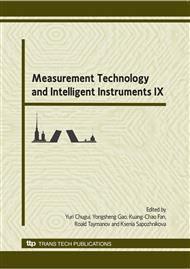p.487
p.492
p.497
p.502
p.509
p.515
p.520
p.525
p.530
In Search for New Paradigm for Humanitarian Measurements: Informational Path between Scylla of Subjectivism and Harybdis of Operationalism
Abstract:
The subjectivity both of researchers (which compile the questionnaires) and experts (which evaluate objects subdued to measurements) penetrates most humanitarian fields. However, trials to introduce objectivity by means of certain ‘rulers,’ usually result in the ‘sin of operationalism’ (P. Bridgman), i.e., strong influence of the ‘rulers’ used. To escape both menaces, it is necessary to change the status both of definition of the phenomenon studied and its empirical indicators: all of them should become the constituents of a certain general model. For most fields, prospective general models can be derived in the framework of the information approach (G. Golitsyn, S. Maslov). One of such approaches permitting to measure assimilation of any system was proved in sociological and psychological investigations.
Info:
Periodical:
Pages:
509-513
DOI:
Citation:
Online since:
May 2010
Authors:
Keywords:
Price:
Сopyright:
© 2010 Trans Tech Publications Ltd. All Rights Reserved
Share:
Citation:


